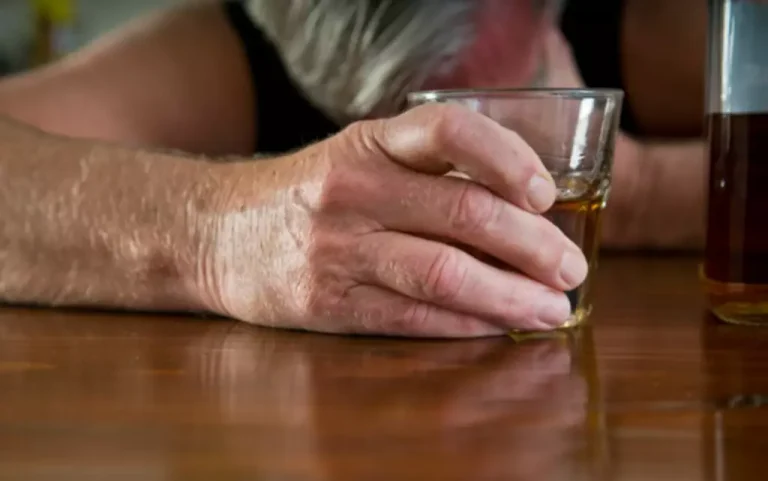
Your liver produces enzymes that break down alcohol, but your liver can only handle so much alcohol at one time (approximately 1 ounce per hour). For those who have a problem with alcohol use disorder, there are resources and tools to help reduce alcohol intake. The National Institute on Alcohol Abuse and Alcoholism (NIAAA) is one of the many institutes of the National Institute of Health (NIH) and is an exceptional resource, consolidating all things related to alcohol. This literature review is the foundation of the current alcohol consumption guidelines. Medical staff can also help resuscitate what is alcoholism anyone who’s experienced extreme blood loss. The morning after a night of over-imbibing can cause some temporary effects on your brain.
New Methods for Analyzing Alcohol Consumption and Stroke-Related Outcomes
- For some people, the effects of alcohol on the blood clotting process may be more pronounced and may last longer than others.
- They offer a number of benefits over warfarin, but they do have some disadvantages.
- If you have alcoholic cardiomyopathy, stopping drinking can lead to improvement or even recovery for many.
- Because heart failure patients usually are older (over age 65) and often are prescribed numerous medications, both the effects of age and of medication use should be carefully considered by patients, clinicians, and researchers.
If you know you’re vulnerable to alcohol misuse, try not to put yourself in an environment that will encourage excessive intake. Long-term alcohol use can change your brain’s wiring in much more significant ways. When you drink too much alcohol, it can throw off the balance of good and bad bacteria in your gut. Your gut microbiome is a hotbed of bacteria that help keep your digestive system happy and healthy. The trillions of microbes in does alcohol thin blood your colon and large and small intestines are critical to proper digestion.
What Are the Effects of Drinking Alcohol on the Blood?
Remember to consult with your healthcare provider, practice moderation, and monitor for any signs of bleeding. Understanding the potential risks and interactions between alcohol and blood thinners is crucial for your overall health and well-being. If you are taking blood thinners, it is important to prioritize moderation and responsible drinking. Monitoring for signs of bleeding, such as unexplained bruising or prolonged bleeding, is also essential.
How does alcohol affect my heart?

These disorders can be diagnosed by microscopic analysis of bone marrow samples;1 This type of diagnosis allows the physician to determine the overall number of cells in the bone marrow as well as the proportion of abnormal cells. For example, different types of leukemia are characterized by the accumulation in the bone marrow of WBC precursors at specific developmental stages. Blood cells make up about 45 percent of the blood volume; the remaining 55 percent consists of a watery liquid called plasma. In addition to water, plasma contains minerals; nutrients; regulatory substances, such as homones; gases, such as oxygen and carbon dioxide; and proteins.

Tips for Reducing Alcohol Consumption

Drinking a glass or two of wine each day might reduce your risk for heart disease and strokes caused by blockages in blood vessels (ischemic strokes) in much the same way that taking a daily aspirin can prevent strokes. Your doctor will often advise you when it’s safe to start drinking alcohol again, from a medical perspective. Psychologically, however, many people feel low in mood after they’re discharged home, especially following open heart surgery. The newest evidence suggests benefits for heart health of drinking alcohol are less and apply to a smaller group ofthe population than previously thought. The only group who might see some benefit overall in the UK is women over the age of 55, but and even then only at low levels of drinking – around 5 units a week or less. If you or someone you know is drinking alcohol, despite being on blood thinners and finding it difficult to stop on your own, speak to your doctor.

However, warfarin treatment is not indicated for alcoholic patients, because alcohol ingestion can significantly interfere with the proper management of warfarin maintenance therapy. Alcohol, as well as alcohol-induced cirrhosis, leads to decreased red blood cell (RBC) production. Hypersplenism, a condition characterized by an enlarged spleen and deficiency of one or more blood cell types, can induce premature RBC destruction. Blood loss occurs primarily in the gastrointestinal tract (e.g., at the sites of peptic ulcers) and is increased in patients with reduced platelet numbers. Folic acid deficiency impairs RBC production and results from decreased ingestion, decreased absorption, and abnormal metabolism of folic acid. Another trend in recent studies of alcohol and CV risk and disease is to include a measurement for binge drinking.

General Health
The net effect is that drinking alcohol increases the risk of bleeding and makes it more difficult for your body to stop bleeding when you experience an injury. Always consult with your healthcare provider before consuming alcohol while taking blood thinners. They can provide specific guidance based on your individual circumstances and medications. In an effort to overcome or prevent the alcohol-induced impairment of the body’s antibacterial defense, researchers have studied the effects of a growth factor called granulocyte-colony stimulating factor (G-CSF) in animal experiments. During normal neutrophil production in the bone marrow, G-CSF promotes the multiplication and functional activity of neutrophils. The studies found that G-CSF stimulated neutrophil recruitment specifically to the site of an infection and ameliorated the alcohol-induced impairment in the defense against bacterial infections.
